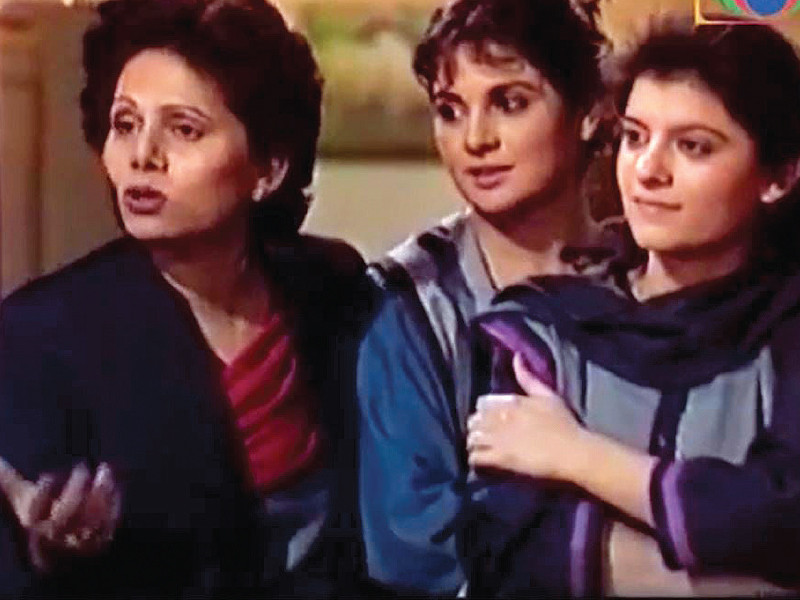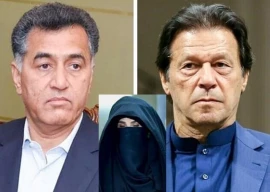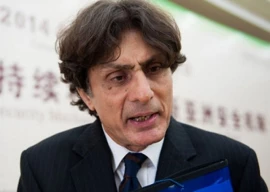
From the changing roles of women in society to the enduring importance of family and community, the late dramatist and scriptwriter Haseena Moin's dramas have produced an enduring body of work that tackles universal themes with a distinctly Pakistani perspective.
In an era of binge-watching and rapidly changing content, these timeless dramas offer something truly special – stories that resonate across decades, inviting viewers to slow down and immerse themselves in narratives that have shaped the landscape of Pakistani television. Revisiting these classics is not merely an exercise in nostalgia. It's an opportunity to appreciate the craftsmanship of Moin's writing – the nuanced storytelling, the stellar characters, and the thoughtful exploration of social issues.
Here are three of the veteran storyteller's iconic offerings that continue to captivate audiences, decades after their initial release.
Ankahi (1982)
Ankahi remains a cornerstone of Pakistani television drama. Lauded for its sensitive narration, the comedy-drama showcases Moin's versatility as a writer, demonstrating her ability to blend humour with depth and social commentary. Centered around the vivacious and outspoken Sana Murad, Ankahi uses humour to address serious issues, from class disparities to gender roles in Pakistani society. Moin's clever writing and memorable characters have ensured its place in the pantheon of great Pakistani dramas.
What makes Ankahi particularly worth revisiting is its refreshing portrayal of a strong, independent woman as its protagonist. Sana is not afraid to speak her mind or challenge societal norms. Her wit, charm, and occasional missteps make her a relatable and inspiring character. The show's supporting cast injects emotional nuance into the story, creating a rich portrait of characters that feel like old friends upon rewatching.
Tanhaiyan (1985)
Moving from the complexities of family life to the halls of medicine, Tanhaiyan presents a poignant exploration of sisterhood, resilience, and personal growth. The story follows two orphaned sisters, Zara and Sanya, as they navigate the challenges of adulthood in Karachi. What makes Tanhaiyan special is Moin's deft balance of drama and light-hearted moments, creating a narrative that feels true to life in its mix of joys and sorrows.
The show's enduring appeal lies in its well-rounded characters and the genuine warmth of their relationships. From the sisters' unbreakable bond to the charming romance between Zara and Asam, Tanhaiyan captures the essence of human connections with remarkable sensitivity. Moin's exploration of themes like female empowerment, the importance of education, and the challenges of starting a career remain relevant today, making it a show that resonates across generations.
Dhoop Kinare (1987)
Completing our trio of classics is Dhoop Kinare. Set against the backdrop of a bustling hospital, this medical drama broke new ground with its realistic portrayal of the medical profession and its exploration of complex social issues. At its heart is the compelling relationship between the stern, dedicated Dr Ahmer and the vibrant, idealistic Dr Zoya. Their journey from professional rivalry to deep understanding and eventual romance is masterfully crafted, avoiding clichés in favour of nuanced character development.
What sets Dhoop Kinare apart is Moin's willingness to tackle controversial topics head-on. From discussing mental health to challenging societal norms about women in the workplace, the show was ahead of its time. Moin's writing brings depth and authenticity to the characters, making them feel real and relatable even by today's standards. Revisiting Dhoop Kinare offers not just entertainment, but a fascinating glimpse into the social dynamics of 1980s Pakistan and the timeless struggles of balancing personal and professional life.


















COMMENTS
Comments are moderated and generally will be posted if they are on-topic and not abusive.
For more information, please see our Comments FAQ